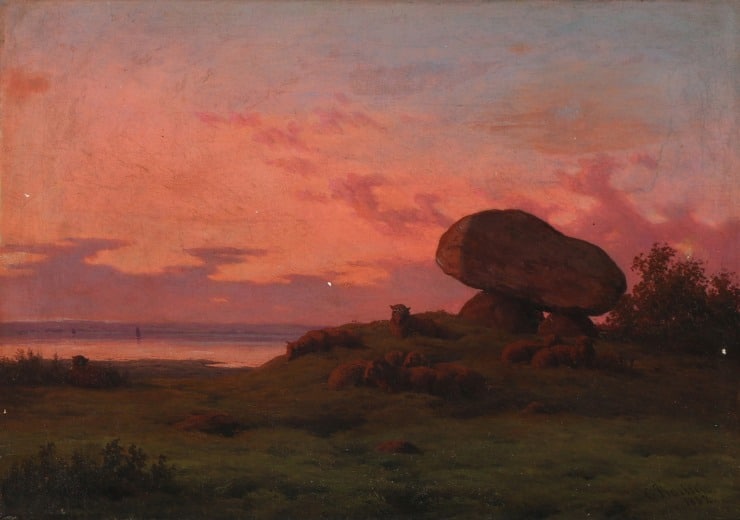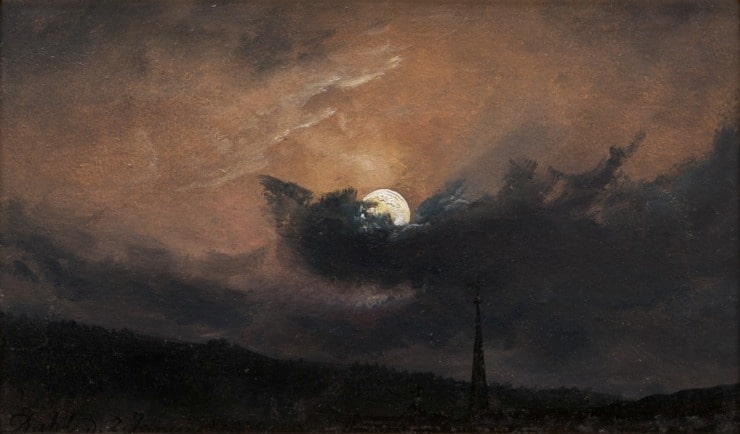< Return to all Wordsworth poems
A Night Piece
—The sky is overcast
With a continuous cloud of texture close,
Heavy and wan, all whitened by the Moon,
Which through that veil is indistinctly seen,
A dull, contracted circle, yielding light
So feebly spread, that not a shadow falls,
Chequering the ground—from rock, plant, tree, or tower.
At length a pleasant instantaneous gleam
Startles the pensive traveller while he treads
His lonesome path, with unobserving eye
Bent earthwards; he looks up—the clouds are split
Asunder,—and above his head he sees
The clear Moon, and the glory of the heavens.
There, in a black-blue vault she sails along,
Followed by multitudes of stars, that, small
And sharp, and bright, along the dark abyss
Drive as she drives: how fast they wheel away,
Yet vanish not!—the wind is in the tree,
But they are silent;—still they roll along
Immeasurably distant; and the vault,
Built round by those white clouds, enormous clouds,
Still deepens its unfathomable depth.
At length the Vision closes; and the mind,
Not undisturbed by the delight it feels,
Which slowly settles into peaceful calm,
Is left to muse upon the solemn scene.
—William Wordsworth
Enjoy Artistic Representations of “A Night Piece” by William Wordsworth

Sunset at a Dolmen by Carl Frederik Bartsch, 1882.

The Moon behind Clouds by Johan Christian Dahl, 1839.
Listen to these Readings of “A Night Piece”
Listen to these Musical Interpretations of “A Night Piece” by William Wordsworth
About William Wordsworth
William Wordsworth, an English poet born in 1770, is credited with having a strong impact on the poetry of his time. He worked with Samuel Taylor Coleridge to publish a collection, Lyrical Ballads, which includes poems believed to be among the most influential in Western literature. With this publication, the two helped initiate English literature’s Romantic Age.

Jerwood Centre at the Wordsworth Trust in Grasmere
Wordsworth also worked to increase the accessibility of poetry, encouraging the use of more common language, and promoting the virtues of lyric poetry.
While in college, Wordsworth went on a walking tour of England and lived for a time in France, where he was greatly impacted by the French Revolution. His earliest work was published in 1793.
His most famous work, The Prelude, was published by his widow in 1850. He worked on the semi-autobiographical poem throughout much of his life, never quite satisfied to publish it.
Wordsworth served as England’s Poet Laureate from 1843 until he died in 1850.